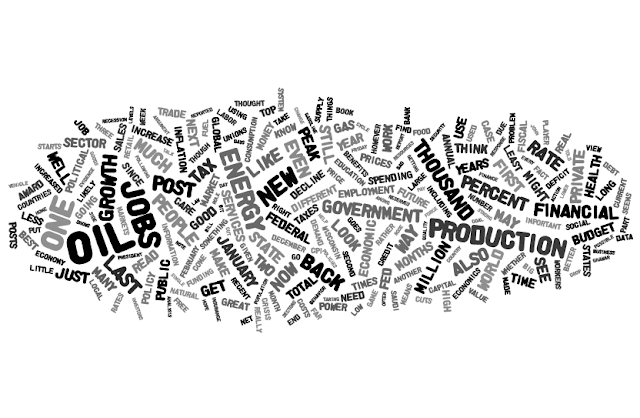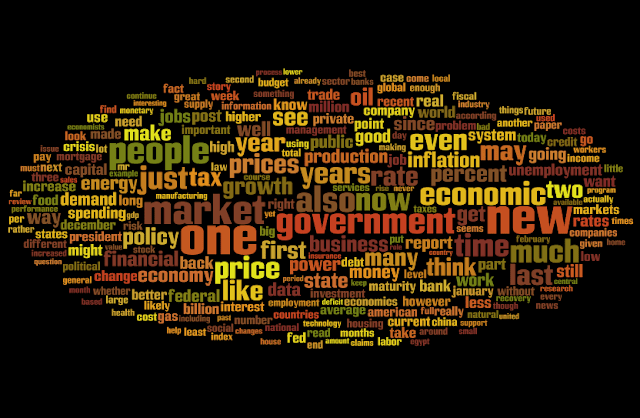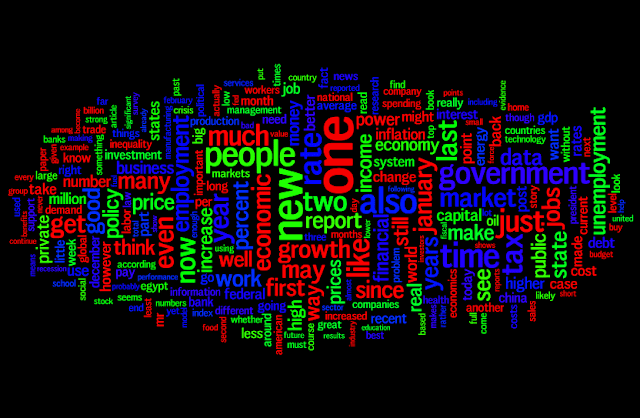The economics zeitgeist, 27 February 2011

This week's word cloud from the economics blogs. I generate a new one every Sunday, so please subscribe using RSS or the email box on the right and you'll get a message every week with the new cloud. Back to normal this week - we seem to have successfully connected to most of the blogs as usual. The words moving up and down the chart are listed here , but be aware that since last week's list is not representative, this week's moves are also unusual. Next week will be back to normal. I summarise around four hundred blogs through their RSS feeds. Thanks in particular to the Palgrave Econolog who have an excellent database of economics blogs; I have also added a number of blogs that are not on their list. Contact me if you'd like to make sure yours is included too. I use Wordle to generate the image, the ROME RSS reader to download the RSS feeds, and Java software from Inon to process the data. You can also see the Java version in the Wordle gallery . If any...




